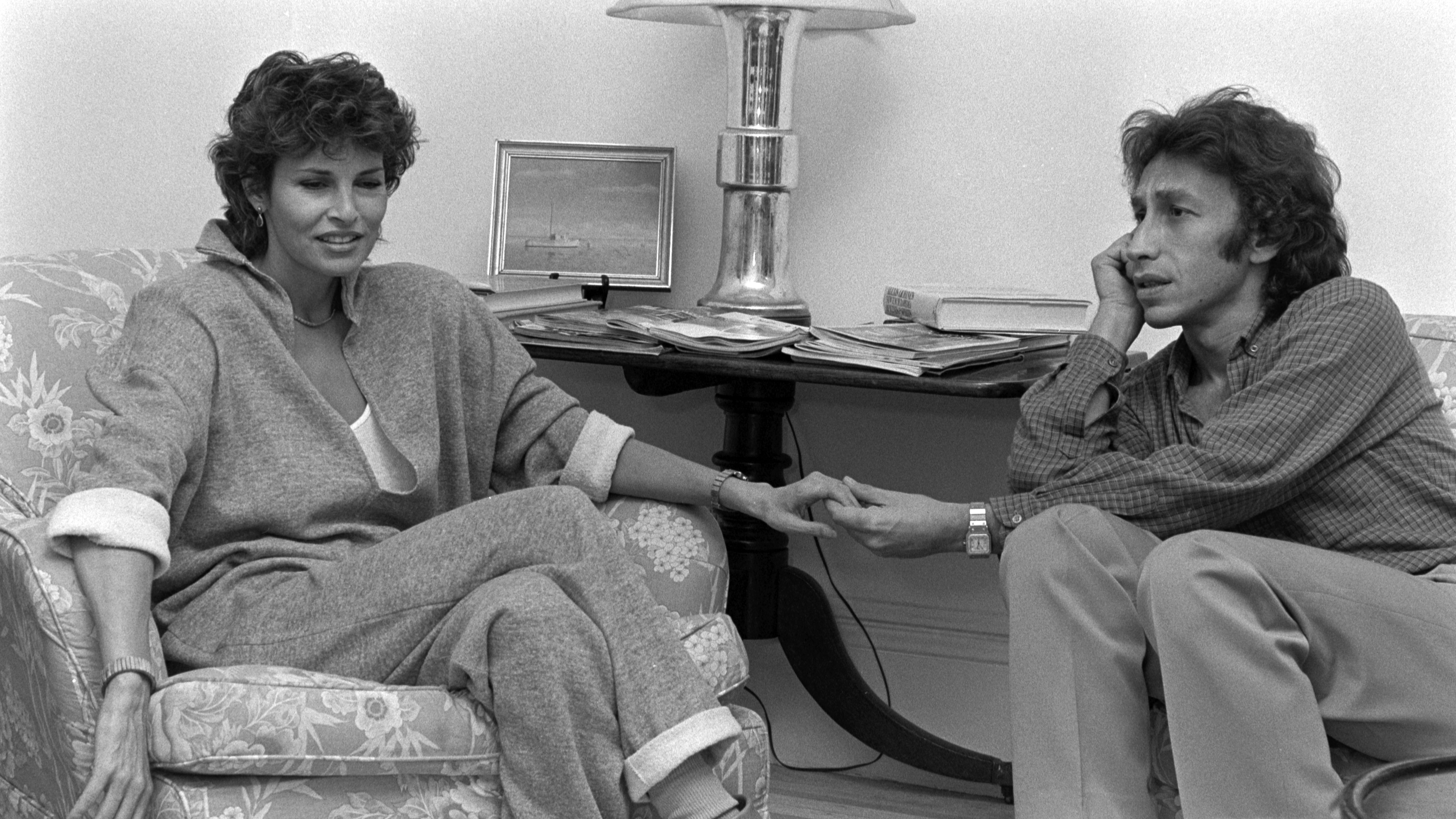Raquel Welch: a reluctant ‘sex goddess’
Star of One Million Years B.C. dies at the age of 82

A free daily email with the biggest news stories of the day – and the best features from TheWeek.com
You are now subscribed
Your newsletter sign-up was successful
Raquel Welch, who has died aged 82, only had three lines in her breakout film, 1966’s One Million Years B.C.; but it wasn’t the movie itself that made her name. Before it was even released, a publicity shot showing her dressed as a cavewoman in a doeskin bikini had caused a sensation, and turned her into a global sex symbol.
The New York Times described the shot as “a marvellous breathing monument to womankind”; the feminist critic Camille Paglia hailed it as “the indelible image of a woman as queen of nature, a lioness – fierce, passionate and dangerously physical”. Made into a bestselling poster, it adorned the walls of countless adolescent bedrooms.
Yet the actress’s “relationship with her sex goddess status was complicated”, said The Times. She admitted to having become “addicted to the attention and the opportunities that came with it”, but she resented being seen as nothing more than her looks. “There was this perception of ‘Oh, she’s just a sexpot. She’s just a body. She probably can’t walk and chew gum at the same time,’” she said in 2012.
The Week
Escape your echo chamber. Get the facts behind the news, plus analysis from multiple perspectives.

Sign up for The Week's Free Newsletters
From our morning news briefing to a weekly Good News Newsletter, get the best of The Week delivered directly to your inbox.
From our morning news briefing to a weekly Good News Newsletter, get the best of The Week delivered directly to your inbox.

She never did quite escape that image, though she turned down a million dollars to appear naked on screen, and even when she agreed to pose for Playboy in 1979, she insisted on remaining semi-dressed. Hugh Hefner was annoyed, but conceded that she was “one of the last of the classic sex symbols from the era when you could be considered the sexiest woman in the world without taking your clothes off”.
Jo Raquel Tejada was born in Chicago in 1940, and brought up in San Diego. Her father was a Bolivian aeronautical engineer, her mother was a seamstress of English descent. She described her father as a volatile man and a bully, said The Guardian, and recalled escaping from her unhappy home life by putting on plays with her friends. She enrolled in a junior theatre, appeared in beauty pageants, and then won a scholarship to study drama at San Diego State University.
She left after a year, however, to marry her high-school boyfriend, James Welch, and present the weather on a local TV station. After having two children, she left Welch – “the most painful decision of my entire life” – and moved to LA, to pursue her acting dreams. (She would marry and divorce again three times.)
Her first leading film role was in Fantastic Voyage, a science fiction epic set on a submarine, in which she appeared in a wetsuit. Following the success of the kitschy One Million Years B.C., she was again dressed in a bikini to play Lilian Lust, one of the Seven Deadly Sins in Bedazzled.
A free daily email with the biggest news stories of the day – and the best features from TheWeek.com

In 1970, she tried to break into serious acting by playing a transgender woman in Myra Breckinridge, an adaptation of the Gore Vidal novel. Unfortunately, the movie was a turkey, and on set she rowed with her co-star Mae West, which led to her gaining a lasting reputation for being difficult. But in 1973, she proved her talent for comedy when she starred in Richard Lester’s The Three Musketeers, for which she won a Golden Globe.
When her big screen career started to fade, she turned to television, said The Washington Post, with roles in everything from Seinfeld to the drama Right to Die.
She also flirted with a pop career, developed a successful one-woman nightclub act that she performed in Las Vegas, wrote a memoir-cum-self-help guide called Beyond the Cleavage, and launched her own lines of cosmetics and wigs.
Decades after the photo that propelled her to superstardom, Welch confessed to having mixed feelings about the sight of herself in her prehistoric bikini. “Sometimes, I go ‘Ugh! Who is she?’,” she told an interviewer. “Other days, I think, ‘Maybe there is something about that girl with her legs astride and hands at the ready that was kind of formidable. Maybe, honestly, that is the essence of who I am.’”
-
 Political cartoons for February 12
Political cartoons for February 12Cartoons Thursday's political cartoons include a Pam Bondi performance, Ghislaine Maxwell on tour, and ICE detention facilities
-
 Arcadia: Tom Stoppard’s ‘masterpiece’ makes a ‘triumphant’ return
Arcadia: Tom Stoppard’s ‘masterpiece’ makes a ‘triumphant’ returnThe Week Recommends Carrie Cracknell’s revival at the Old Vic ‘grips like a thriller’
-
 My Father’s Shadow: a ‘magically nimble’ film
My Father’s Shadow: a ‘magically nimble’ filmThe Week Recommends Akinola Davies Jr’s touching and ‘tender’ tale of two brothers in 1990s Nigeria
-
 Arcadia: Tom Stoppard’s ‘masterpiece’ makes a ‘triumphant’ return
Arcadia: Tom Stoppard’s ‘masterpiece’ makes a ‘triumphant’ returnThe Week Recommends Carrie Cracknell’s revival at the Old Vic ‘grips like a thriller’
-
 My Father’s Shadow: a ‘magically nimble’ love letter to Lagos
My Father’s Shadow: a ‘magically nimble’ love letter to LagosThe Week Recommends Akinola Davies Jr’s touching and ‘tender’ tale of two brothers in 1990s Nigeria
-
 Send Help: Sam Raimi’s ‘compelling’ plane-crash survival thriller
Send Help: Sam Raimi’s ‘compelling’ plane-crash survival thrillerThe Week Recommends Rachel McAdams stars as an office worker who gets stranded on a desert island with her boss
-
 Book reviews: ‘Hated by All the Right People: Tucker Carlson and the Unraveling of the Conservative Mind’ and ‘Football’
Book reviews: ‘Hated by All the Right People: Tucker Carlson and the Unraveling of the Conservative Mind’ and ‘Football’Feature A right-wing pundit’s transformations and a closer look at one of America’s favorite sports
-
 Catherine O'Hara: The madcap actress who sparkled on ‘SCTV’ and ‘Schitt’s Creek’
Catherine O'Hara: The madcap actress who sparkled on ‘SCTV’ and ‘Schitt’s Creek’Feature O'Hara cracked up audiences for more than 50 years
-
 6 gorgeous homes in warm climes
6 gorgeous homes in warm climesFeature Featuring a Spanish Revival in Tucson and Richard Neutra-designed modernist home in Los Angeles
-
 Touring the vineyards of southern Bolivia
Touring the vineyards of southern BoliviaThe Week Recommends Strongly reminiscent of Andalusia, these vineyards cut deep into the country’s southwest
-
 Nan Goldin: The Ballad of Sexual Dependency – an ‘engrossing’ exhibition
Nan Goldin: The Ballad of Sexual Dependency – an ‘engrossing’ exhibitionThe Week Recommends All 126 images from the American photographer’s ‘influential’ photobook have come to the UK for the first time